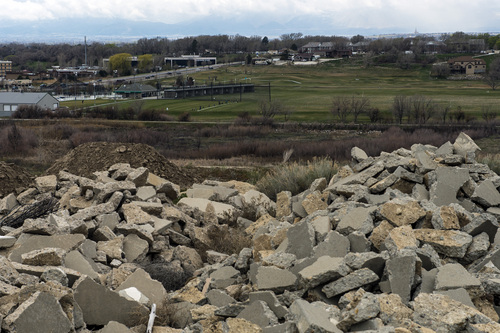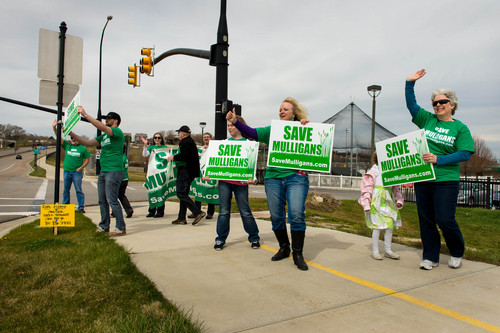This is an archived article that was published on sltrib.com in 2014, and information in the article may be outdated. It is provided only for personal research purposes and may not be reprinted.
Residents fighting to prevent South Jordan from selling and developing city-owned Mulligans Golf and Games are calling for a state audit of South Jordan finances because of what they say are discrepancies in information recently presented by the city from that contained in the city's audited annual financial reports.
"They're essentially trying to restate audited financial results … trying to portray [the golf course] in terms of a big tax drain," said Deanna Kaufman, a neighbor of the golf course and opponent of its development.
Kaufman contends the city is attempting to "feed misinformation to the public" for the purpose of mustering support for development of the 67-acre property on 106th South adjacent to the Jordan River.
"I think they're greedy. I think they want to sell Mulligans."
Kaufman and her husband Stephen are working with the citizens group Save Mulligans that for several weeks has attempted to raise the alarm about potential development of the property.
The city's financial records show the golf course operates in the black. But those records don't account for the annual bond payments that require a subsidy.
The city issued a statement Monday defending the accuracy of recently released financial information on Mulligans.
"As Mulligan's is run like a business, in that patrons are required to pay to use the facility unlike a public park, in evaluating the Mulligan's property, the objective was to determine whether there was a business case for continuing to operate it under this paradigm," said the statement released by city spokesman Chip Dawson. "In order to make that evaluation and to determine the actual cash flow cost of running Mulligan's, the Comprehensive Annual Financial Report statements were converted to a modified accrual basis of accounting."
The new format gives residents "an opportunity to evaluate the financial operations of Mulligan's from a business perspective," Dawson said. He reiterated city leaders commitment to listening to and working with residents.
Development opponents say if that's true they'll find most citizens favor keeping the golf course as open space.
"Mulligan's golf course is financially sound," says Stephen Kaufman, "and can remain so with wise management. The land itself is priceless and should never be developed. We urge the City Council to preserve not only Mulligan's, but all city parks, for future generations."
Mayor David Alvord and the city council have taken no formal action to develop the property. But the council did release a nearly year-old study in April in which a consultant hired by the city portrayed potential development of the golf course as a good economic-development opportunity for the city.
Residents opposed to that development likely won't find much relief from the state auditor's office in their request for a review of city financial records.
The auditor maintains a "hotline" program that allows citizens and whistleblowers to initiate audits of state agencies and local governments — but those efforts are generally focused on allegations of fraud, mismanagement or waste of taxpayer money.
"Given that there's no allegation of impropriety [with the Mulligans financial dispute] that's a tougher one," said auditor's office spokeswoman Nicole Toomey Davis. "We'd invite them to go through the process" of submitting a hotline audit request.
However she said perhaps the best solution was for the citizens group to pay for a private audit of the city finances. "It's not our responsibility to mediate political disputes," Davis said.





